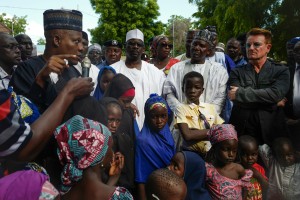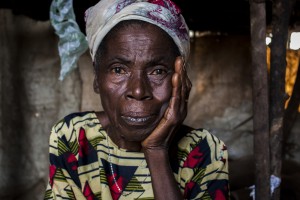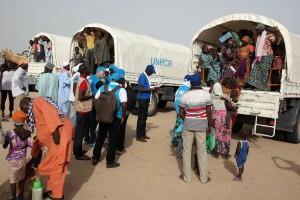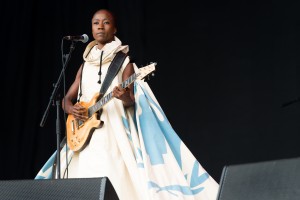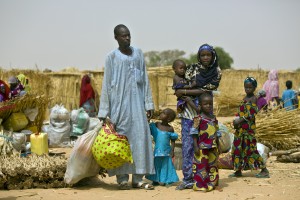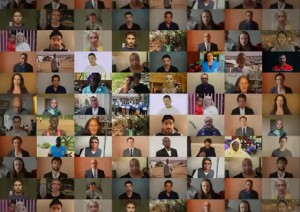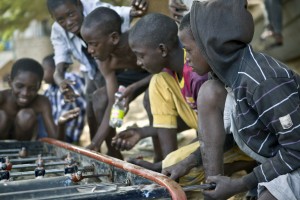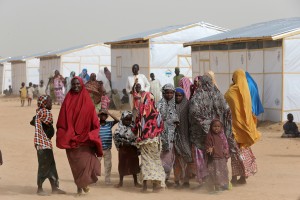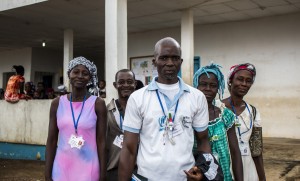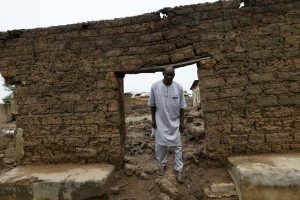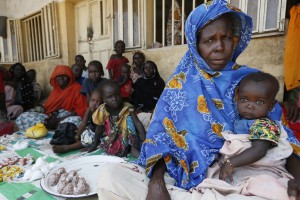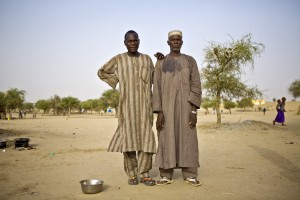Graffiti artists get involved in the fight against statelessness to a tune of rap
Senegalese artists drew a new mural on the main wall of UNHCR’s offices in Dakar
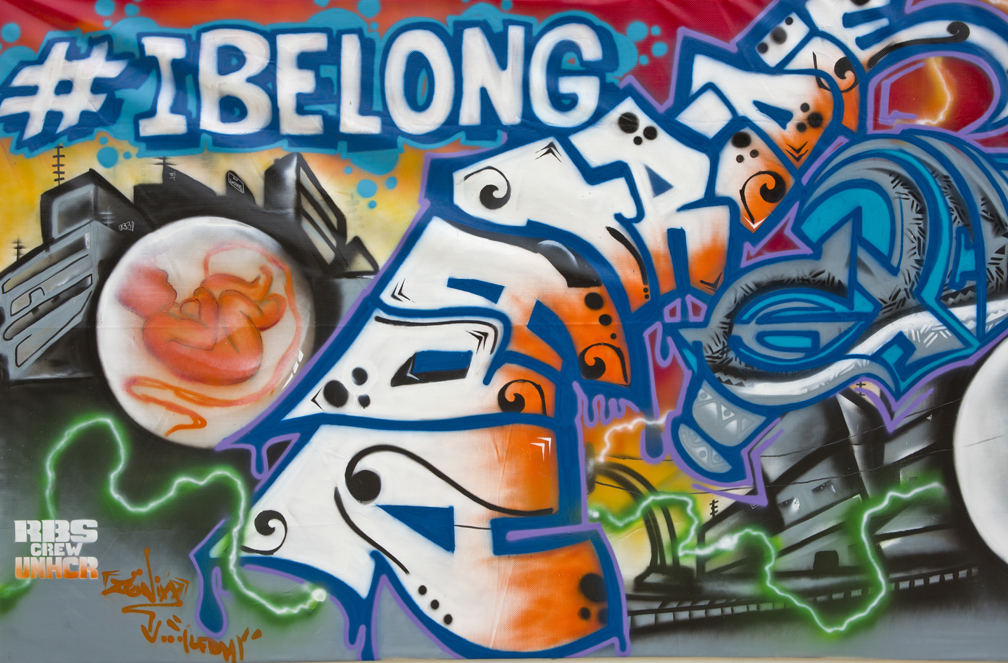 UNHCR / Helene Caux
UNHCR / Helene CauxEight Senegalese graffiti artists worked one day on the main wall of UNHCR’s office in Dakar to sensitize the general public on the issue of statelessness in West Africa. To end this plight, join UNHCR #I belong campaign to end statelessness.
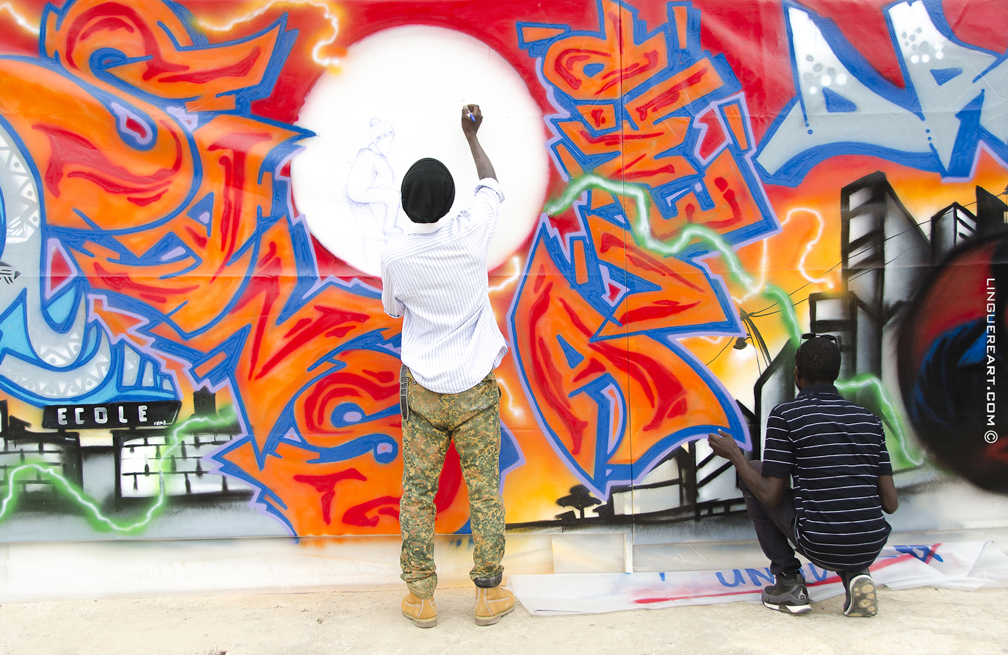
RBS crew at work. RBS / Malika Diagana
DAKAR, SENEGAL, 11 November 2015 (UNHCR) – On the occasion of the first anniversary of the global campaign to eradicate statelessness, celebrated this month, eight graffiti artists drew a new mural with messages about this plight on the main wall of UNHCR’s offices, located in the Almadies neighborhood of Dakar. These artists belong to the group RBS Crew, which represents a Senegalese youth that is independent, open and committed to a more fair society. True to their word, the graffiti artists, some of whom are also rappers and hip hop singers, have joined UNHCR’s campaign against statelessness, #iBelong. Fair works well!
The mural is divided into three parts, the first two focused on the isolation and exclusion that a stateless person experiences as a result of not having any legal existence. The third section depicts the hope borne out of the Abidjan Declaration of February 2015, which paves the way to the right to a nationality for everyone. “Ensuring access to a nationality, without barriers or discrimination, is a prioirity for our youth”, declares Madzoo, 27, one of the group’s main graffiti artists. “Our graffiti speaks to this youth and urges it to become engaged”.
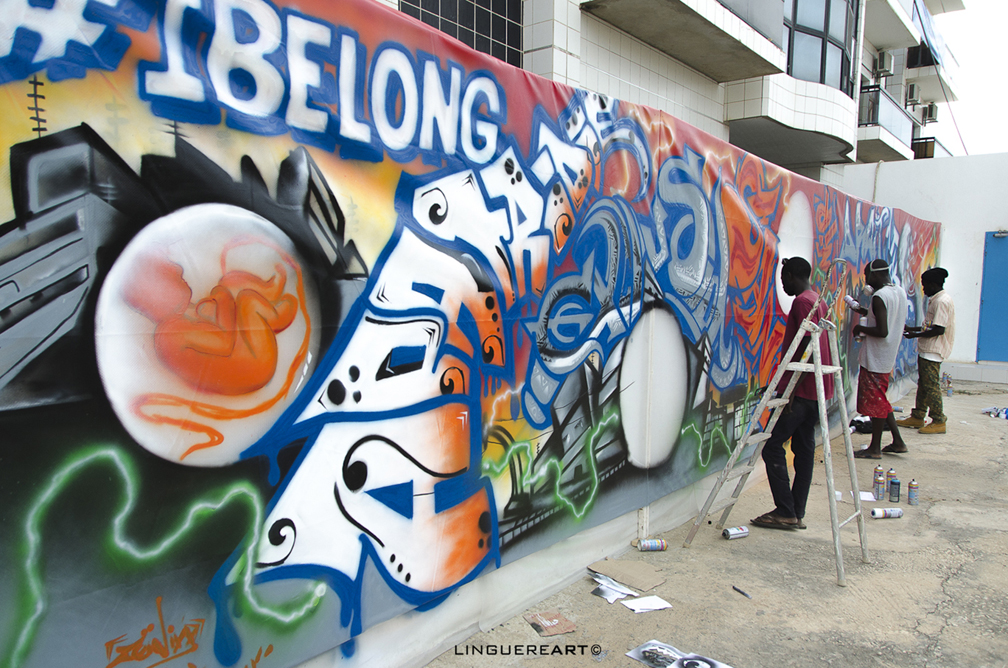
RBS team at work on the UNHCR graffiti. RBS / Malika Diagana

RBS / Malika Diagana
Statelessness affects more than 10 million people in the world. In West Africa, close to one million people are stateless or at risk of statelessness.
The modern and colorful mural has attracted many curious passers-by, young and not so young, who stop in front of UNHCR’s offices and ask questions about the concept of statelessness and the right to a nationality. The adventure with the artistic group continued with the production of a video, which further solidified the partnership between UNHCR’s staff in Dakar and the graffiti artists, many of whom did not hesitate to use the messages in the mural and call on people to join the campaign to eradicate statelessness.
They got involved. What about you?

UNHCR / Helene Caux
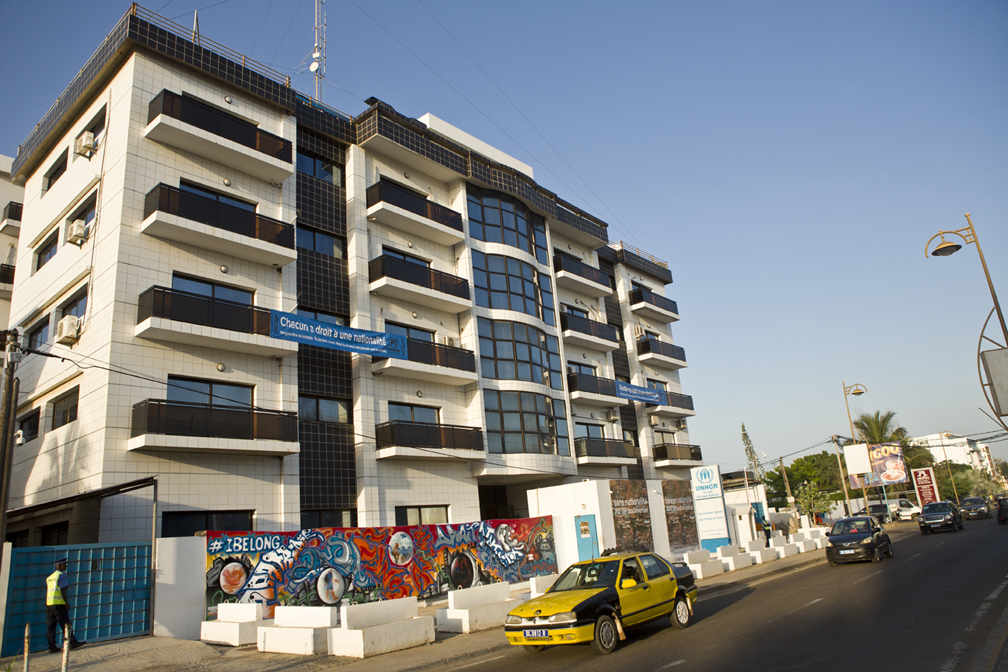
UNHCR Office in Dakar. UNHCR / Helene Caux

UNHCR / Helene Caux
Join the campaign against statelessness: http://ibelong.unhcr.org
http://kora.unhcr.org/ecowas-members-adopt-declaration-eradication-statelessness-west-africa/
The Abidjan Declaration: http://unhcr.org/ecowas2015/#_ga=1.94600149.819906846.1342173545
Le texte en français:
Les artistes graffeurs s’engagent contre l’apatridie sur un air de rap
Des artistes sénégalais dessine une nouvelle fresque sur le mur principal des bureaux du HCR à Dakar
DAKAR, SENEGAL, 11 novembre 2015 (UNHCR) - A l’occasion du premier anniversaire de la campagne mondiale d’éradication de l’apatridie ce mois-ci, huit graffeurs ont dessiné sur le mur principal des bureaux du HCR, situés dans le quartier des Almadies, à Dakar, une nouvelle fresque graffiti parsemée de messages sur ce fléau. Ces artistes appartiennent au collectif RBS Crew qui représente une jeunesse sénégalaise indépendante, ouverte, et engagée pour une société plus juste. Fidèles à leurs engagements, les graffeurs - dont certains sont rappeurs et chanteurs Hip Hop - ont donc rejoint la campagne du HCR contre l’apatride #I belong.
La fresque comporte trois parties, les deux premières représentent le parcours d’isolement et d’exclusion de l’apatride qui n’a aucune existence légale. La dernière représente l’espoir né de la Déclaration d’Abidjan* en février 2015, une déclaration qui ouvre la voie vers le droit à la nationalité pour tous. L’accès au droit à une nationalité, sans barrière ni discrimination, c’est un combat pour notre jeunesse ", déclare Madzoo, 27 ans, l’un des principaux graffeurs du collectif. « Nos graffitis parlent à cette jeunesse et l’incitent à s’engager ».
L’apatridie touche plus de 10 millions de personnes dans le monde. En Afrique de l’Ouest, près d’un million de personnes sont apatrides ou à risque d’apatridie.
La fresque colorée et moderne a attiré de nombreux curieux, des jeunes et des moins jeunes, devant les bureaux du HCR, beaucoup s’interrogeant sur le concept de l’apatridie et du droit à la nationalité. L’aventure avec le collectif a continué avec la réalisation d’une vidéo scellant ainsi l’alliance entre les graffeurs et le personnel du HCR à Dakar, puisque certains n’ont pas hésité à reprendre les messages de la fresque et à lancer un appel à rejoindre la campagne pour mettre fin de l’apatridie.
Ils se sont engagés. Et Vous ?
Rejoignez la campagne de lutte contre l’apatridie : http://ibelong.unhcr.org
http://kora.unhcr.org/ecowas-members-adopt-declaration-eradication-statelessness-west-africa/
La Déclaration d’Abidjan : http://unhcr.org/ecowas2015/#_ga=1.94600149.819906846.1342173545

